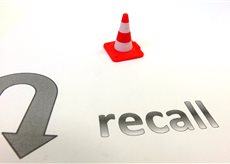 While automakers are required to put their vehicles through a rigorous testing process before they’re road-ready, many dangerous defects still slip through – and fixing those defects once the car has been sold is difficult at best.
While automakers are required to put their vehicles through a rigorous testing process before they’re road-ready, many dangerous defects still slip through – and fixing those defects once the car has been sold is difficult at best.
That means millions of potentially dangerous vehicles are still on the road, and unfortunately, accidents involving those vehicles are all too common. Some defects, such as issues with brakes and steering, make collisions more likely. Others, such as faulty airbags, lead to more serious injuries and fatalities when collisions happen.
A recent accident in Houston, which killed the driver of a 2002 Honda Civic, highlighted the dangers associated with recalled cars. The 17-year-old motorist’s death was the 11th fatality linked to defective Takata airbags.
Honda has issued six recall notices for those defective airbags since 2011, and it isn’t the only manufacturer involved. Because manufacturers try to reduce costs by sharing underlying components between different vehicles, a single defective product can affect millions of cars. The Takata recall in particular affects over 24 million vehicles sold by 14 different automakers.
Because many of those vehicles – such as the 2002 Civic involved in the Houston accident – were sold over a decade ago, tracking down the owners to send recall notices can be very difficult. Older cars may have been sold and re-sold several times, and owners may have changed addresses.
Even when the recall forms do reach owners, getting the vehicles repaired can be a challenge. The highest repair rates seen for motor vehicle recalls are about three out of four vehicles – and those are for the deadliest defects involving newer cars. The Takata recall has a repair rate of only 27 percent thanks to the sheer volume of vehicles involved.
Legal implications of an accident involving a recalled vehicle
Liability for accidents in which a recalled car part played a role can be quite complex. In general, injuries caused by defective products – including defective vehicles – fall under the legal field of product liability. In order to recover damages, the injured person must prove that the manufacturer produced a faulty product due to manufacturing or design defects, or failed to adequately warn users of the dangers associated with the product.
However, products with an active recall in place are in different legal territory because there may be multiple responsible parties to look at. By sending out recall letters and notifying owners of the potential danger, manufacturers may be able to limit their own liability in these cases – especially when they offer to pay for necessary repairs. However, this limitation of liability may not apply if the manufacturer does not have enough parts to allow the recall repair to take place in a timely fashion, or if there are delays at the dealership in making repairs because of the sheer quantity of recall repairs needing to be made.
Vehicle owners owe a duty of care to other motorists to keep their cars in good working order. As such, an owner who receives a recall notice and knowingly continues to use the vehicle without repairing the dangerous defect first could be held liable if that vehicle is later involved in an accident. Given that repairs to recalled vehicles cost the private owners nothing, failing to complete those repairs could very well be considered negligence on the owner’s part.
Other parties could also potentially be at fault in an accident involving a recalled vehicle. For instance, if repairs are conducted, but the repair facility makes an error during the repair, that repair facility could be held liable for injuries. Regulations require rental car companies to pull recalled vehicles from their fleets until they have been repaired; as such, a rental company that fails to comply with that law could also be considered negligent.
If a recalled product was involved in your auto accident, you may be entitled to financial compensation. However, finding that compensation can be difficult. These types of accidents absolutely call for experienced legal representation to investigate the way the recall was conducted and navigate the many potential liabilities involved.

